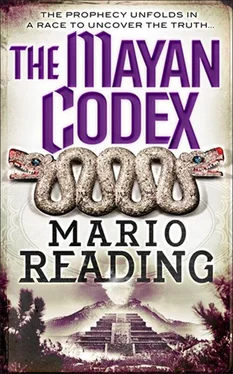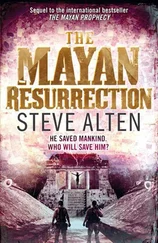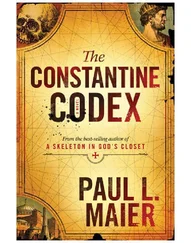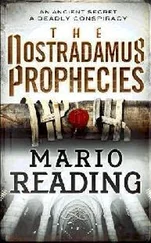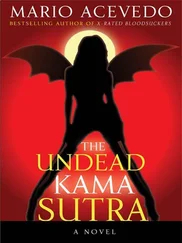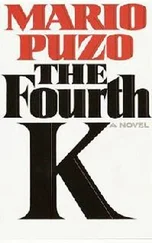Mario Reading - The Mayan Codex
Здесь есть возможность читать онлайн «Mario Reading - The Mayan Codex» весь текст электронной книги совершенно бесплатно (целиком полную версию без сокращений). В некоторых случаях можно слушать аудио, скачать через торрент в формате fb2 и присутствует краткое содержание. Жанр: Триллер, на английском языке. Описание произведения, (предисловие) а так же отзывы посетителей доступны на портале библиотеки ЛибКат.
- Название:The Mayan Codex
- Автор:
- Жанр:
- Год:неизвестен
- ISBN:нет данных
- Рейтинг книги:3 / 5. Голосов: 1
-
Избранное:Добавить в избранное
- Отзывы:
-
Ваша оценка:
- 60
- 1
- 2
- 3
- 4
- 5
The Mayan Codex: краткое содержание, описание и аннотация
Предлагаем к чтению аннотацию, описание, краткое содержание или предисловие (зависит от того, что написал сам автор книги «The Mayan Codex»). Если вы не нашли необходимую информацию о книге — напишите в комментариях, мы постараемся отыскать её.
The Mayan Codex — читать онлайн бесплатно полную книгу (весь текст) целиком
Ниже представлен текст книги, разбитый по страницам. Система сохранения места последней прочитанной страницы, позволяет с удобством читать онлайн бесплатно книгу «The Mayan Codex», без необходимости каждый раз заново искать на чём Вы остановились. Поставьте закладку, и сможете в любой момент перейти на страницу, на которой закончили чтение.
Интервал:
Закладка:
‘For three months now Friar de Landa has travelled throughout our country, a few days behind his soldiers, enforcing the orders of the Franciscan monks. As Provincial of the Franciscan order in the Yucatan, Friar de Landa has the full backing of the Judge of the High Court of Guatemala and the Confines, Tomas Lopez. It must be added here that Judge Lopez is also a friar of the Franciscan order, and that Judge Lopez has directed, in this capacity, that any and all Maya towns still remaining outside the Franciscan remit be turned over instantly into Franciscan hands.
‘In addition, Judge Lopez has given Friar de Landa full Imperial authority, using the Papal Bull exponi nobis as his justification, in respect of what is called “the regimentation of daily and social life”. Judge Lopez also stipulates that any violations of the Friar’s rights in this matter, and all infringements by the native Indians in misguided support of their previous rights, “be punished as by the Inquisition”. Here is the full text of the Ordinances of the Royal Audience of the Confines, promulgated by Judge Lopez in 1552:
“Coming from the Royal Audiencia in Guatemala, at the request of the Friars in Yucatan, and decreed for the conduct and treatment of the Indians.
In exercise of the power of our Emperor, vested in me, I command you, the caciques, chief men and people, as follows:
No cacique shall be absent from his town, save for the temporal or spiritual good, or as called by the padres, for over 50 days, on pain of loss of office.
The Indians must not live off in the forests, but come into the towns together, in good strong houses, under pain of whipping or prison.
To avoid difficulties in doctrination, no Indian shall change from one town to another without permission of the local Spanish authorities.
Since many of the chiefs and older men, in the respect they hold by their ancient descent, call the people into secret meetings to teach their old rites and draw them from the Christian doctrine, in their weakness of understanding, all such actions and meetings are prohibited.
The caciques shall not hold gatherings, nor go about at night, after the bells are sounded for the souls in purgatory.
Every cacique or chief of a town shall carry in mind the list of all the people. Every man of the common people absenting himself from his town for over 30 or 40 days, save in public service or with the padres, even with permission from his cacique, shall be punished by 100 blows and 100 days in prison.
Every town, within two years, must have a good church, and one only, to which all may come. Nor may any cacique build any other church than the one, under pain of 100 blows.
Every town shall have schools where the Indians shall be taught the necessity of baptism, without which no one can enjoy God. The schools shall be built by the town, and the caciques shall compel them thereto, in the form and manner required by the padres, and at places designated by them.
On the days for doctrination, one shall go through the towns, bearing a cross and cloth, to call all people together, where all shall gather in order, those of each town by themselves.
If any one, after having heard the holy word and left his false doctrines, shall return to these, he shall be imprisoned to await the due punishment to be ordered by the Royal Audiencia.
No Indian shall undertake by himself to preach the holy word save by express license of the religious fathers.
No baptized person shall possess idols, sacrifice any animals, draw blood by piercing their ears or noses, nor perform any rite, nor burn incense thereto, or fast in worship of their false idols.
No Indian baptized, shall return to be baptized a second time.
Many Indians having been told that their children will die if baptized, I command that all children be brought for baptism.
Matrimony being in great respect among the Indians, I ordain that no one shall have more than one wife, and that an adulterer shall receive 100 blows, and other punishments if he does not amend.
No cacique shall have to do with a female slave.
No one shall be so daring as to marry secretly.
No one shall marry twice, on penalty of branding with a hot iron in a figure 4 on the forehead.
No purchase gifts shall be made to the woman’s parents, nor shall the youth be required by them, as by their old customs, to remain and serve in their father-in-law’s house for two or three years.
No one shall give a heathen name to his children.
All people must bend the knee before the sacrament, recite the prayers fixed when the Ave is rung, and reverence the cross and images.
Every one, man or woman, must go to the church both morning and evening, and say an Ave and Paternoster with all reverence.
At meals all shall say grace before and after, and on retiring at night cross themselves and recite the prayers the fathers will teach them.
No one shall cast grains of corn for divination, nor tell dreams, nor wear any marks or ornaments of their heathendom, nor tattoo themselves.
So lacking in charity and care even for their wives or husbands, or family, are the Indians, that I command that all shall care for them when sick, etc.
Where much sickness comes to a town, it shall be reported, and the fathers shall have those at hand for instruction in holy dying.
All inheritances shall be properly cared for.
There shall be no holding in slavery, and all so held shall be set free. But allow to the caciques, principal men or other powerful Indians to hire people for their service, all of whom shall be reported to the padres and taken to them for doctrination.
The custom of banquets to large numbers is so common, and so destructive of Christianity, that I order that no general banquets be given by any one save at marriages or like fiestas, but then no more than a dozen people may be invited.
No dances shall be held except in daytime.
God gave us time for work, and time for his service; whereby I order the keeping of all church fiestas, as and in the manner fixed by the religious fathers.
All preparation of their ancient drinks is prohibited, and the caciques, principal men, and even the encomenderos are ordered within two months to gather and burn all utensils or cups used therein, on penalty of 20 pesos fine if they allow more to be made.
Towns must be in the Spanish fashion, have guesthouses, one for Spaniards and another for Indians. Also marketplaces to avoid all travelling about to sell or buy. Nor shall any merchant, Indian, Mexican, mestizo or negro, be lodged in any private house.
Proper weights and measures shall be provided within two months, on penalty of 20 pesos gold.
I command the raising of cattle to be introduced among the Indians. The chief tribute of the country being cotton mantles, I order that teaching for this be given.
I order that all women wear long skirts and over them their huipiles; and that all men wear shirts and go shod, at least with sandals.
Since the Indians are always wandering the woods to hunt, I order that all bows and arrows are to be burned. But each cacique shall hold two or three dozen bows, with arrows, for special occasions, or necessity as against tigers.
Good roads from town to town shall be kept in order.
No negro, slave or mestizo shall enter any village save with his master, and then stay more than a day and night.”
‘All this I know and can transmit to you because I am Friar de Landa’s private secretary, charged with translation, notation, and documentation of the rights of the Church – in this capacity I work alongside the Friar’s official notary, Francisco de Orozco, as his trusted lieutenant. Why then, you ask, am I bearing witness to de Landa’s perfidy by writing in the last of the Maya holy books when, to all intents and purposes, I am an integral part of his retinue, an honorary member of the Franciscan order, and de Landa’s personal representative amongst the Maya? This I will now explain to you.
Читать дальшеИнтервал:
Закладка:
Похожие книги на «The Mayan Codex»
Представляем Вашему вниманию похожие книги на «The Mayan Codex» списком для выбора. Мы отобрали схожую по названию и смыслу литературу в надежде предоставить читателям больше вариантов отыскать новые, интересные, ещё непрочитанные произведения.
Обсуждение, отзывы о книге «The Mayan Codex» и просто собственные мнения читателей. Оставьте ваши комментарии, напишите, что Вы думаете о произведении, его смысле или главных героях. Укажите что конкретно понравилось, а что нет, и почему Вы так считаете.
